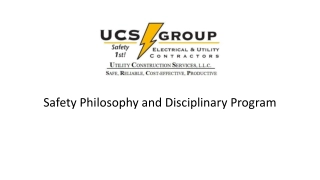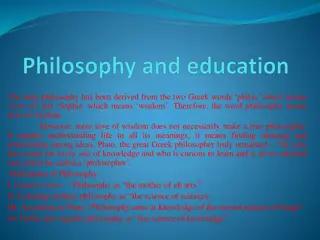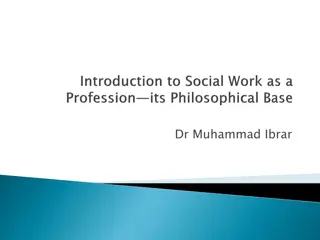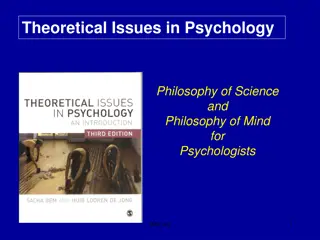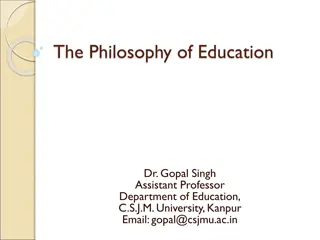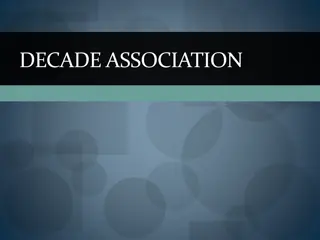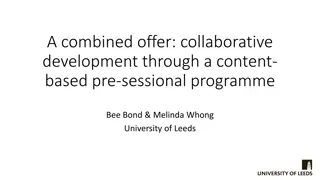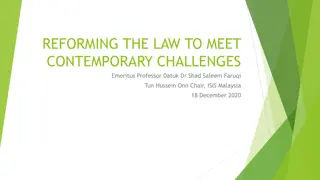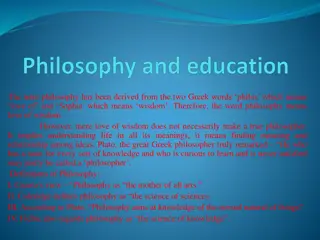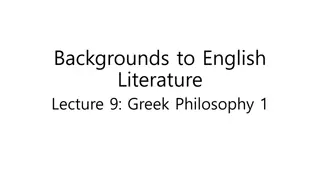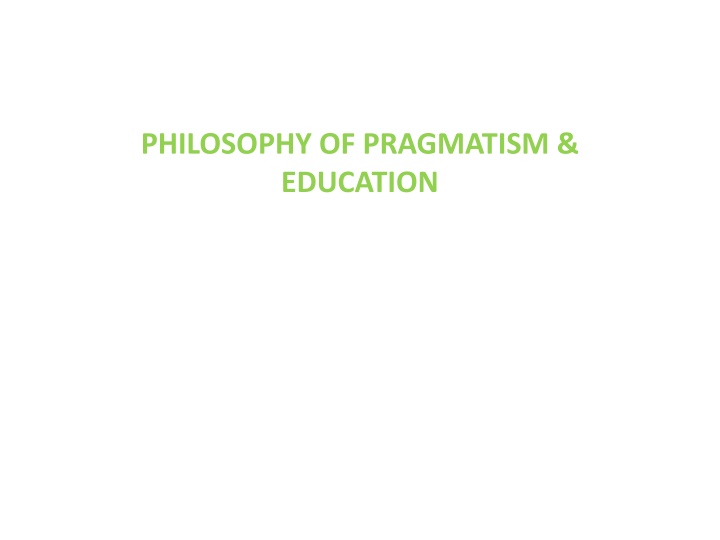
Pragmatism and Education: A Progressive Philosophical Approach
Explore the philosophy of pragmatism and its impact on education, focusing on key proponents like Charles Sanders Peirce, William James, John Dewey, and George Herbert Mead. Pragmatism emphasizes practicality, utility, and the importance of problem-solving to lead a fulfilling life. Discover how pragmatism shapes modern education, promoting progressive trends and valuing individual freedom and democracy.
Download Presentation

Please find below an Image/Link to download the presentation.
The content on the website is provided AS IS for your information and personal use only. It may not be sold, licensed, or shared on other websites without obtaining consent from the author. If you encounter any issues during the download, it is possible that the publisher has removed the file from their server.
You are allowed to download the files provided on this website for personal or commercial use, subject to the condition that they are used lawfully. All files are the property of their respective owners.
The content on the website is provided AS IS for your information and personal use only. It may not be sold, licensed, or shared on other websites without obtaining consent from the author.
E N D
Presentation Transcript
PHILOSOPHY OF PRAGMATISM & EDUCATION
INTRODUCTION Pragmatism as a philosophical tradition began in the United States around 1870. Charles Sanders Peirce is the principle proponent of pragmatism.
MEANING The word pragmatism is derived from the Greek. Pragmatism means practice and action. Pragmatism means utility. Pragmatism is an American philosophy. According to this thought what ever is useful is good and whatever is good is useful. A pragmatist lives in a world of facts and not in a world of ideas or ideals.
PROPONENTS Charles Sanders Peirce. William James. John Dewey. George Herbert Mead.
PRAGMATISM & EDUCATION Pragmatism supports for progressive trends in education. Pragmatism has influenced the modern education greatly. According to this school of thought education should help an individual to meet human needs & solve problems and thereby enable an individual to lead a happy life.
According to pragmatism activity lies at the centre of all educative process. Education is a continuous process which is progressive and flexible. It stands for freedom and worth of the individual. It works on the principle of democracy and education as a social necessity.

